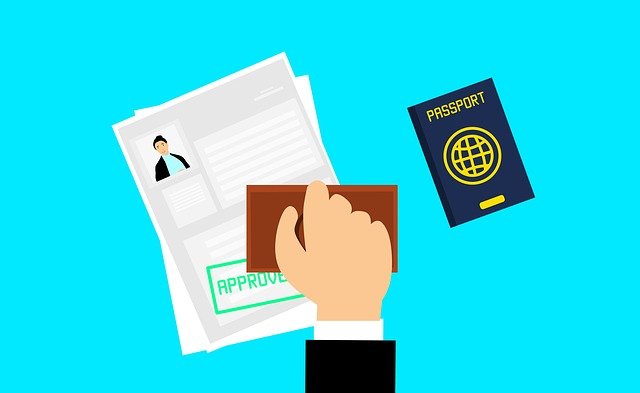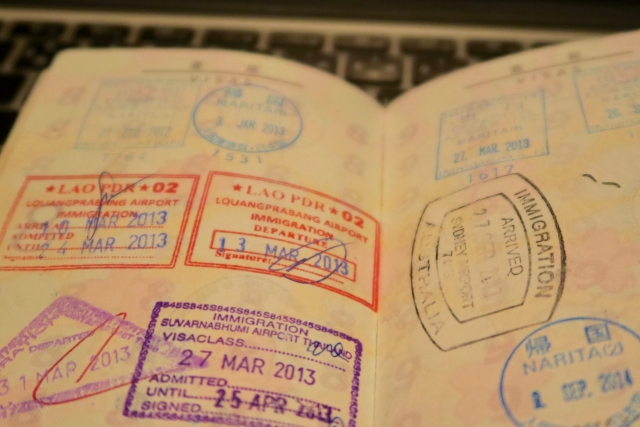Imagine a situation: you came to Japan to fulfill your dream of living in the land of Godzilla and sushi. You have a Designated Activities (or Student) visa which allows you to work part-time or freelance for a certain amount of hours per week. You think, “Good, I can look for a full-time job while working part-time or freelance,” but months have passed and now you have only a few of them left on your residence card. Feeling desperate already? You can relax a little bit because there is still a way for you to get a self-sponsored visa Japan. In this article, I am going to explain how you can get it even if you’re only working part-time or doing freelance.

Can I Really Get a Self-Sponsored Visa Japan?
There is no such thing as a uniquely “self-sponsored” visa (that is why you won’t find it in our “Visa” article) for those who are working part-time or freelance but yes, you can still get the “Engineer / Specialist in Humanities and International Services” visa without having a full-time job to sponsor you. Be prepared that it may be harder because you will need to do a lot of paperwork but if you’re successful, the end result will be worth it. Please also keep in mind that such important things as visa matters should be discussed with a visa lawyer.
How Can I Sponsor Myself for a Japanese Visa?
First of all, you need:
1. To show that you are earning enough money. It should be at least 200,000 yen per month if you want your application to be successful. Some people say that 250,000 yen is better
2. A part-time employer to sponsor your new visa. Yes, you still need a company that will vouch for you but in this case, it is absolutely ok if the salary does not match the Japanese minimum wage because you have other income. If you established a good relationship with people working at the company you can explain that all you need is their stamp and financial data, everything else you can do yourself. This employer will be your “main” one and you should state so (writing its name address, etc) on the immigration form. To state your other income (the rest of the money that makes up that 200,000 yen) you should use the Permission to Engage in Activity other than that Permitted under the Status of Residence Previously Granted form
3. Fill in a 個人事業主 (kojin jigyō nushi – Sole Proprietorship) at your local tax office and bring it to the Immigration bureau.
These are the most important things but they might request some additional documents like proof of your work and income (a contract showing income and hours worked is enough). Make sure it is clear and backed-up with supporting documents – contracts, payslips or invoices. If it’s in Japanese, even better (and maybe necessary, but I can’t comment as my contracts were in Japanese).
For some jobs, you may need a 在職証明書 (zaishoku shomeisho – Certificate of Employment) – if you already have a working visa but quit your job; a 源泉徴収票 (gensen choshu hyo – Tax Withholding Slip) from your local ward office (especially for those working freelance); and contracts with the companies that you are working freelance/part-time for.
Visas that are qualified for the “self-sponsorship” are Artist, Journalist, Researcher, Engineer, Specialist in Humanities/International Services, and Skilled Labor but even if you are a student there is still a chance that you can obtain the visa if you show that you have long-term contracts with the companies you are working with.

What Are the Benefits of Sponsoring Your Own Visa?
You are no longer attached to one company and that might allow you to earn more money, particularly if you work as a foreign language teacher. You can do as many side gigs as you want. There is one big disadvantage though. If you self-sponsor your visa there is no way it can be longer than 1 year, unfortunately. Meaning that if you want to apply for the Permanent Residency in the future, you would need another type of visa or a “real” sponsor.
Conclusion: Even Part-Timers and Freelancers Are Eligible for a Self-Sponsored Visa Japan
Remember, you can still get a working visa in Japan, even if you’re not working full-time. Had you heard about it before reading this article? Do you have any friends who have a self-sponsored visa Japan? Let us know in the comments!





